Budget 2021: What do businesses in Wales want?
- Published
- comments
Rising costs resulting in "nerve-racking" times for families on a budget
Businesses in Wales have called for help from the chancellor to address rising costs and staff shortages.
Chancellor Rishi Sunak will deliver the UK government's autumn budget on Wednesday.
Bangor University economist Dr Edward Thomas Jones said Mr Sunak faced a "difficult and interesting" situation.
Tregroes Waffles wants action to address rising energy costs, which is making ingredients more expensive.
At the bakery in Llandysul, Ceredigion, the production line for Tregroes Waffles is delivering about 36,000 waffles a day.
The snack has been produced in the Teifi valley since 1983, originally at the founder's home in Tregroes and later at an industrial unit in Llandysul.
Sales have increased by 50% compared with last year, when the pandemic badly affected orders. But interest in the product is also about 20% higher than pre-pandemic sales, with the snack's popularity among hamper providers contributing to its growth.
'Prices have gone sky-high'
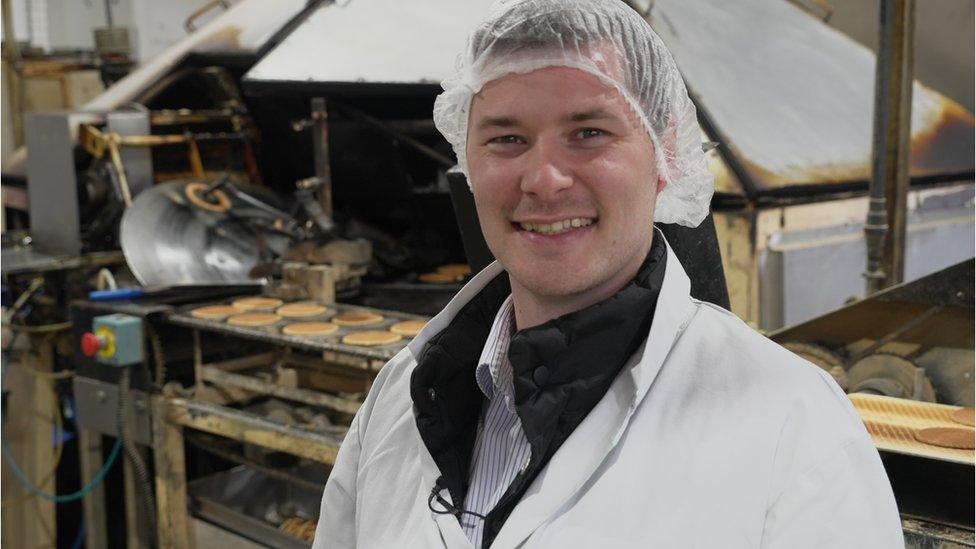
Rhys Jones from Tregroes Waffles asked for rising ingredient costs to be subsidised
Rhys Jones, Tregroes Waffles sales manager, said: "There is a lot more appetite among customers in Wales and around the UK who are looking for snacking confectionary items, like our product.
"And the retailers, the larger supermarkets, are buying a lot of waffles compared to what they used to."
Meanwhile the rising cost of energy, already being felt by households, is also hitting businesses and driving up their costs. Eventually, those business costs must be absorbed or passed on to the customer.
The situation has led Tregroes Waffles to ask the UK government to address the issue as part of its autumn Budget.
Mr Jones said: "Ingredient costs have been really, really high, so perhaps there is some way they could assist us in subsidising ingredient costs?
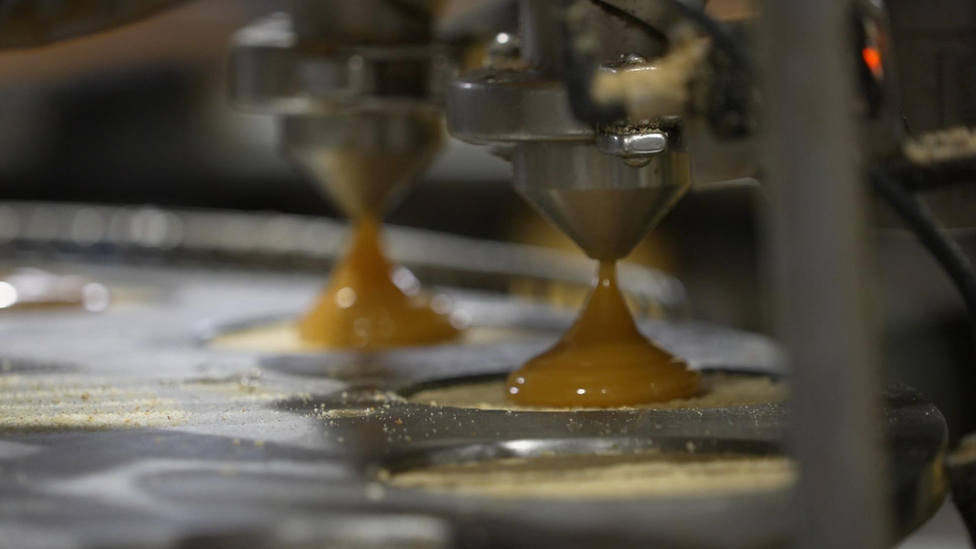
The cost of ingredients has been rising at Tregroes Waffles
"We use ingredients such as cinnamon, such as glucose or sugar, and the prices have gone sky-high mainly due to the rising cost of energy which it is taking to produce that product.
"So if we are talking about the big difficulties that we could have help with, we are talking about the cost of ingredients and staffing.
"Some way that we could get help to get more reliable staffing in place and consistent pricing of ingredients - that would be a big help for us, and for us to trade competitively."
'It's affecting families'
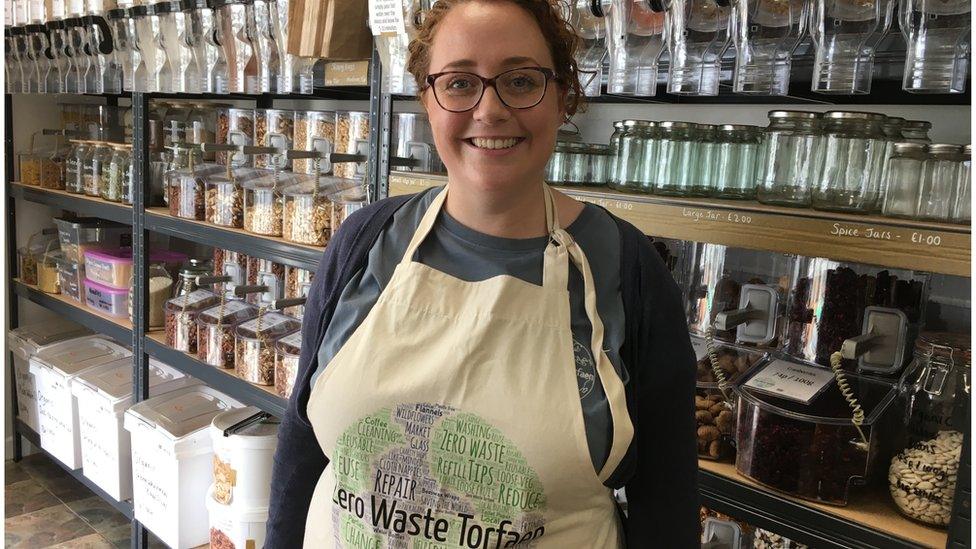
Lauren Morse said a lot of small businesses were "teetering on the edge"
Mother-of-two Lauren Morse, from Cwmbran, opened her own shop - Zero Waste Torfaen - last month.
But rising costs have made the self-confessed "money worrier" anxious.
"It's worrying because as a small business you can't absorb it all and I've already found that because I've been so busy there's already a few things I've been selling for less than I paid for them because I hadn't noticed they'd gone up on the invoices," she said.
"Prices are going up all the time and I can absorb some price increases but it gets to a point where you've got to change the prices on the labels and that's obviously affecting people's pockets long-term and it's affecting families.
"I'm really passionate about this being affordable for people which means it's small margins and at the end of the day things will get passed on to customers and all our pockets."
What can we expect in the Budget?
Some details have already been revealed, including the decision to increase the national living wage to £9.50 an hour.
It follows the independent recommendation of the Low Pay Commission, and will mean wage increases at hospitality businesses such as the Wynnstay, a 24-bed hotel and restaurant in Machynlleth, Powys.
While the Wynnstay was already planning to increase wages, owner Charles Dark is cynical about the broader impact of increasing minimum pay across the board.
"This is the sort of classic cop-out by the government 'oh yeah, we will increase the minimum wage, we are helping people get more money'.
"Yes, but they are taking it away in National Insurance and prices are going to go up.
"The simple fact is that in hospitality, the wage bill is the biggest single cost that the business has. And business has to be sustainable. If you can't pay the wages you have to let people go, and the business will go under."
Mr Dark said his business would be able to absorb the cost of increasing the minimum wage, but added: "I think in the wider term it is going to have a big impact on some businesses which are a little bit tighter - particularly those who may be renting from pub companies, where the costs are so very difficult."
Bangor University economist Dr Edward Thomas Jones said the benefit felt from increased wages may be lost by the increased cost of living.
"Unfortunately, what the chancellor wants to have is an economy with rising wages. However, what he is getting is an economy with rising prices," he said.
"So if wages aren't rising at the same rate as prices because of inflation, then people will feel that they are having a pay cut because they're not able to buy as much goods as they were before."
Dr Jones said the Budget came when the UK was in a "difficult and interesting economic situation", particularly as inflation continues to affect people and businesses.
"Costs are rising, so whatever money the chancellor thought he had to spend, that is now going to buy less."
- Published26 October 2021

- Published25 October 2021
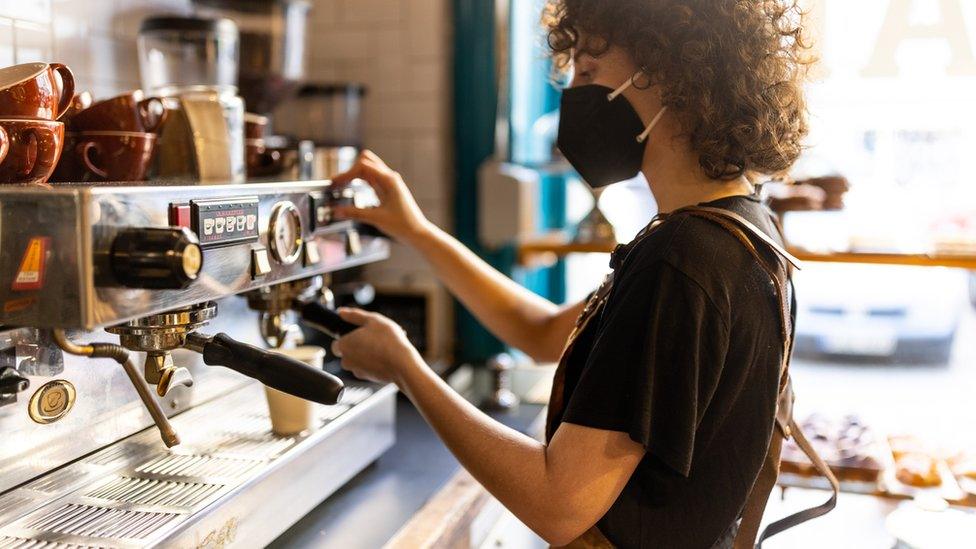
- Published25 October 2021

- Published26 October 2021
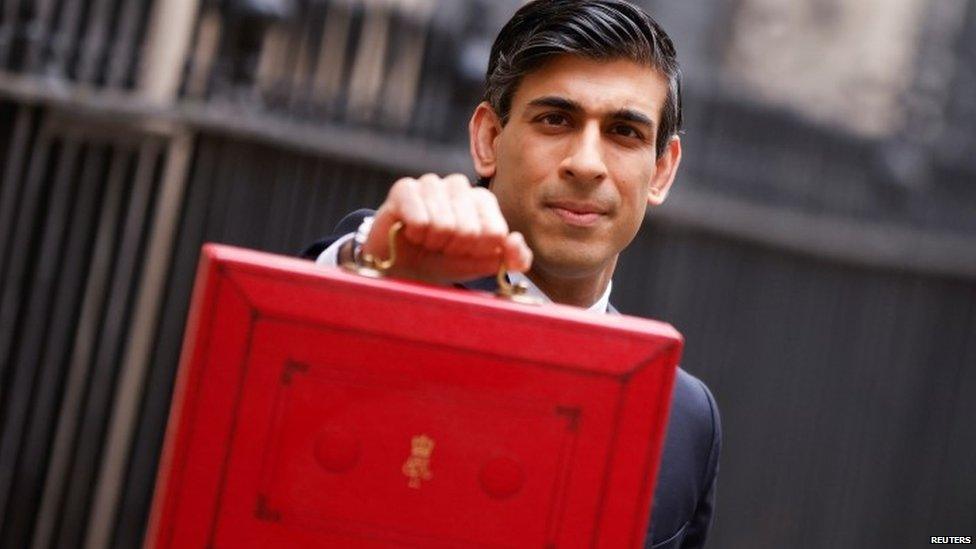
- Published26 October 2021

- Published27 October 2021
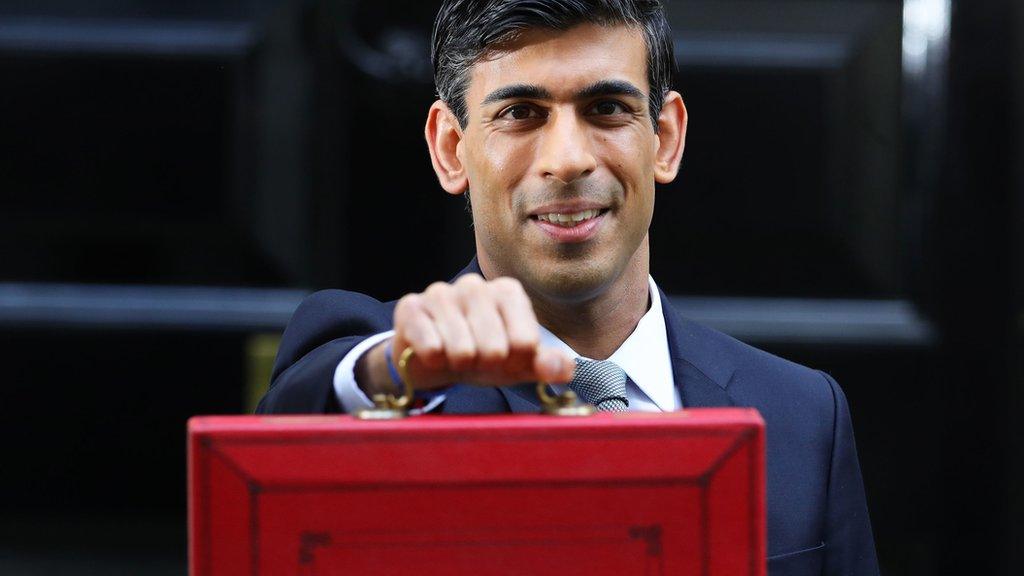
- Published11 September 2021

- Published16 May 2021

- Published18 October 2021
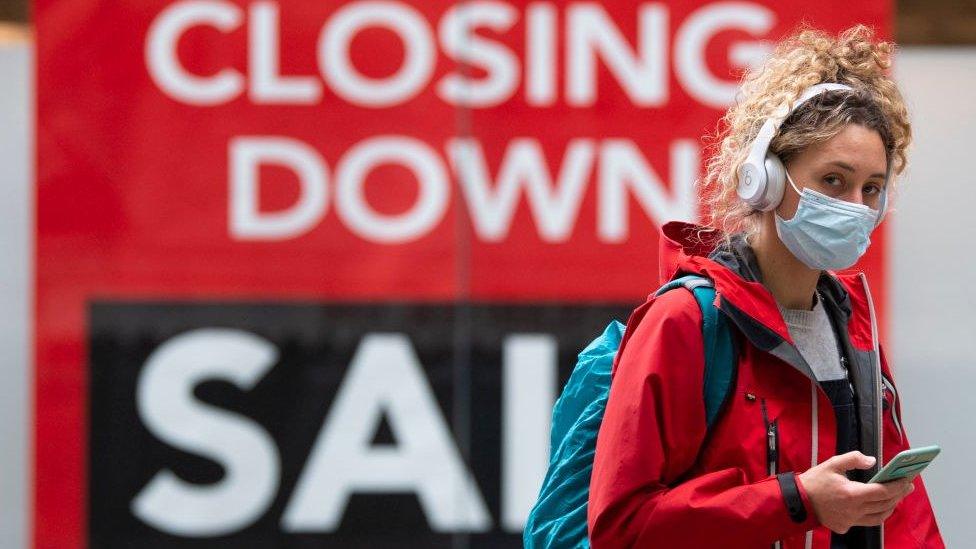
- Published20 May 2021
